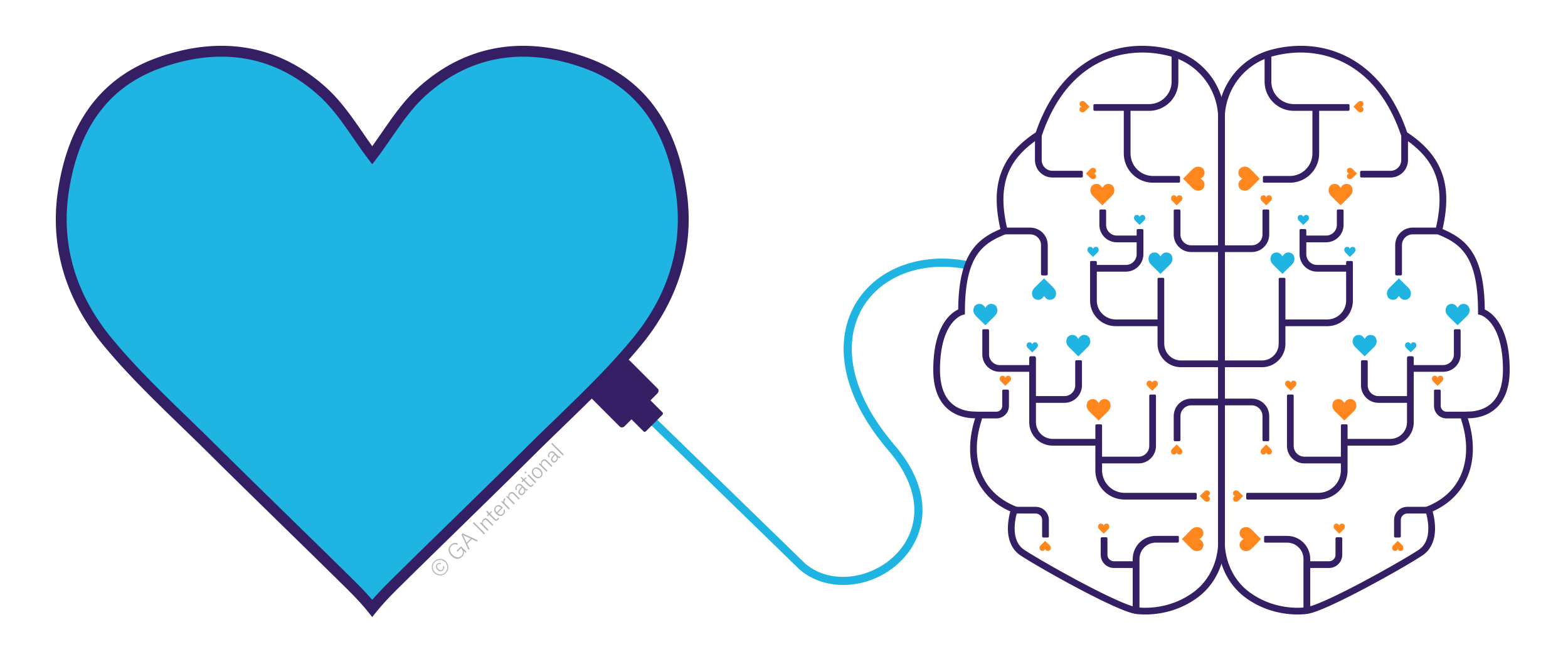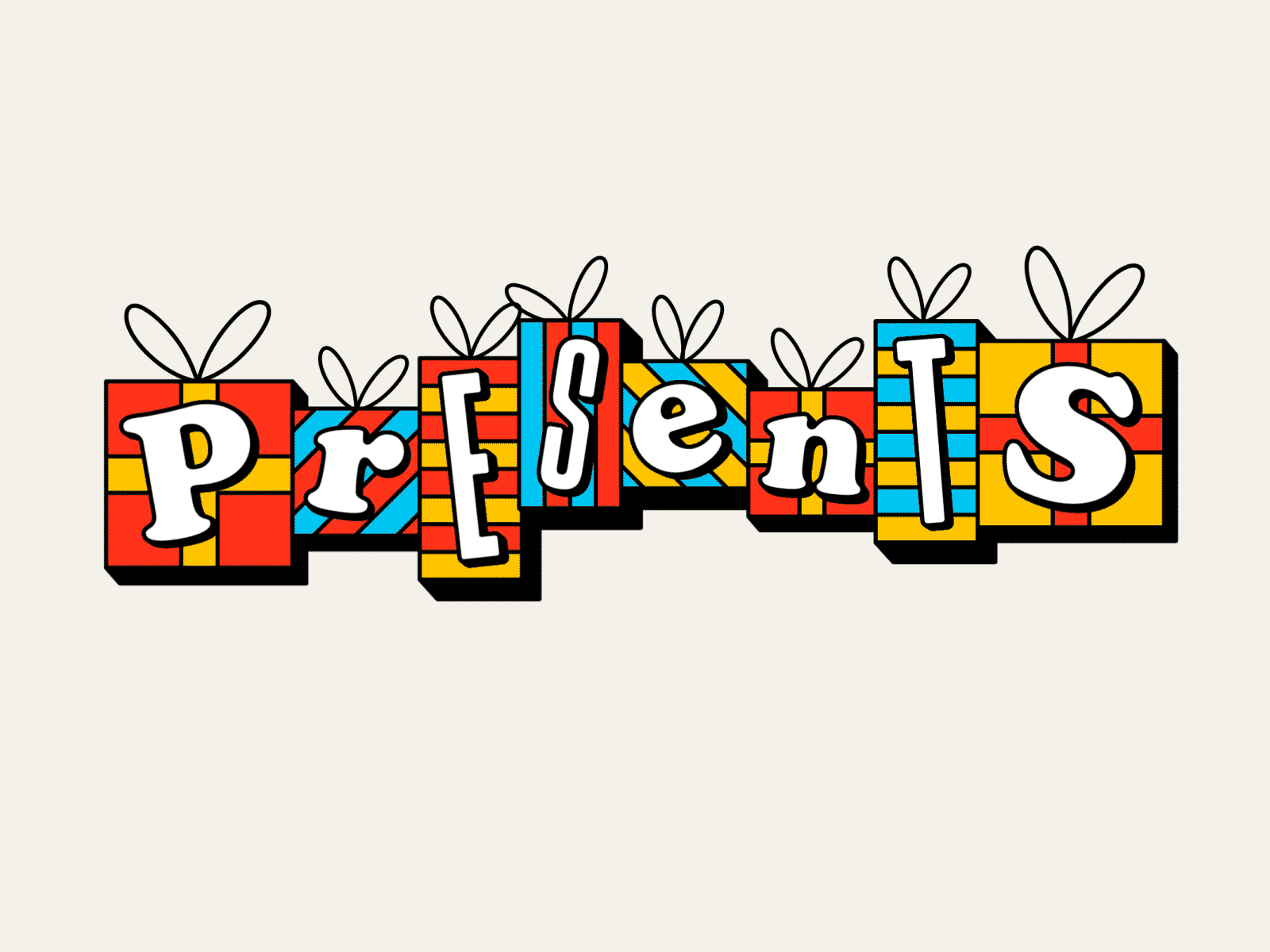C
hristmas is around the corner, and people are already starting to plan out their Christmas gift ideas. With all the holiday shopping vibes spreading around, I started to think about what I got for Christmas last year and what I gave in return. This reflection led me to a deeper understanding of why giving is better than receiving, a sentiment that resonates with many during this festive season. By recalling my own experiences and stories told by my friends, I realized that we often found ourselves not only struggling with the idea of finding gifts but also in accepting gifts. Have you ever felt stressed when receiving an expensive gift because you did not know what to give in return? Have you ever felt unworthy or that you do not deserve to have any gifts? Some people often find receiving is more difficult than giving, highlighting the psychological benefits of giving. It’s interesting to explore how the act of giving can bring more joy and fulfillment than receiving. Let's find out why.
Are you looking for the perfect gift? Watch Our TED
Talk!

Why Is Giving Better?
Promotes Happiness and Satisfaction
"Giving is better than receiving because giving starts the receiving process" quoted Jim Rohn. This concept holds true in various aspects of life, reinforcing the idea that giving is better than receiving not just in sentiment but also in creating positive outcomes. There are countless ways to give, and people show generosity from donating money or items to charity to giving thoughtful gifts to the ones we love. Empirical research done by Harvard Business School found that altruistic behavior such as gift-giving and charitable giving can promote happiness and well-being (Anik, Aknin, Norton, & Dunn, 2009). Their studies examined the association between happiness level and prosocial expenditures. Results indicated people who spent more on buying gifts for others and donations to charities were associated with higher levels of happiness, whereas people who spent more on paying bills/expenses and buying gifts for themselves had nothing to do with happiness (Anik, Aknin, Norton, & Dunn, 2009). Besides, they also found that how people spend their money is more important than how much money they have spent. Furthermore, according to self-determination theory, 3 components are fundamental for basic human needs: autonomy, competence, and relatedness, which are important for psychological well-being and intrinsic motivation. Autonomy refers to people feeling like they are in control of choices and making informed decisions. A sense of volition and self-governing of thoughts and behavior. Competence is the ability to master tasks and apply knowledge to lists of skills and abilities. People gain confidence when they achieve their desired goals. Relatedness means the need to have meaningful relationships with others. Being socially connected with others around them. A study has found that prosocial spending promotes greater happiness when people meet all the 3 needs (Dunn, Aknin, & Norton, 2014). The benefits of prosocial spending are greater when an individual feels that their decision to give gifts is controllable, is effective, and will have an impact on people whom they are socially connected with (Dunn, Aknin, & Norton, 2014). Will happiness encourage people to engage in future prosocial spending? The answer is yes. The relationship between prosocial spending and happiness is bidirectional (Aknin, Dunn, & Norton, 2011). Prosocial spending promotes happiness and this happiness increases the individual's long-term prosocial expenditure. Thus, Harvard Business School's study also found that asking participants to recall the memory they spent on buying gifts for others evokes happiness, which in turn encourages them to continue to engage in prosocial consumer behavior in the future (Anik, Aknin, Norton, & Dunn, 2009). Therefore, people are more likely to derive happiness and satisfaction when buying gifts for others, a true embodiment of the principle that giving is better than receiving.
Confused what to gift? Here’s How We Provide You
Researched-based Gifts & Giveaways!

An Altruistic Act
Altruism is associated with selflessness. Altruism is the behavior of people putting the interests and wellness of others before one's own. We do things purely out of a willingness to help, not because of ulterior motives, such as obligation, loyalty, or recognition. There is no expectation of anything in return. In a recent study by Velde (2017), she found out that pure altruism is not enough to explain human prosocial behavior. Instead, "belief-based altruism" is the altruism we give to make people feel good, without or exceeding any objective and material standard of well-being (Velde, 2017). Gift-giving is an example of belief-based altruism as we give gifts to show that we truly care about our favorite person and even a thoughtful little gift will make a huge difference for someone who is struggling with loneliness or mental health problems, especially during the pandemic. This altruism can also apply to charities and donations. For example, we go to a cupcake fundraising booth to buy cupcakes not only because we like cupcakes, but to support the charity group and also want the sellers to feel successful and experience joy; When we donate money to help victims of wildfires, what matters is not the money but the thought that counts. We hope to provide emotional support for the victims and the impact we will have on them.

Health Benefits
Perhaps most of us believe that spending money on ourselves is the ultimate way to make us happier and healthier. However, spending money on others can maximize our health because it makes us feel we are socially connected, highlighting the psychological benefits of giving. Prosocial spending can lower your blood pressure and improve your physical health. Research done by the University of British Columbia found that prosocial spending can lower blood pressure among older adults diagnosed with hypertension (Whillans, Dunn, Sandstrom, Dickerson, & Madden, 2016). Besides, prosocial spending can foster subjective well-being by reducing psychological symptoms, such as anxiety and depression (Miles, Andiappan, Upenieks, & Orfanidis, 2021). A recent study also suggested that providing social support can reduce stressful behavior and it serves as an effective coping strategy on a daily basis (Aknin, & Hanniball, 2017).
The Neurobiology of Altruistic Giving
Gift-giving, charity, and donations are various prosocial behaviors associated with altruism, while altruism is also associated with reciprocity and rewards (Filkowski, Cochran, & Haas, 2016). These altruistic acts not only demonstrate social responsibility but also highlight the psychological benefits of giving. There are a few brain regions that are activated when people engage in altruistic behavior: ventral tegmental area (VTA), amygdala, anterior cingulate cortex (ACC), dorsolateral prefrontal cortex (DLPFC) (Filkowski, Cochran, & Haas, 2016). Researchers have found the mesolimbic pathway, including the VTA region and subgenual area, were responsible for reward processing and activated both when people making charitable decisions or "purely monetary rewards" (Moll, et al., 2006). The mesolimbic pathway, sometimes referred to as the reward pathway, connects the VTA to the cerebral cortex and regulates reward reinforcement from directed stimuli, food, desire, money, and drugs (Moll, et al., 2006). The VTA is a group of neurons located in the midbrain, which contains dopaminergic (DA) neurons and it plays a key role in reward reinforcement. The subgenual area, also called Brodmann area 25, was not responsive in monetary reward but only active uniquely in donation-related financial decision-making and it plays a key role in social attachment and reward mechanisms (Pulcu, et al., 2014; Moll, et al., 2006). It is important to acknowledge that when people make charitable donations, this area of the brain is more active than they respond to monetary gain, emphasizing the psychological benefits of giving. The anterior cingulate cortex (ACC) is related to decision-making and empathy-related reactions. This brain region allows people to make decisions purely related to the interest of others (Moll, et al., 2006). Other brain region, dorsolateral prefrontal cortex (DLPFC) were involved in processing emotion stimuli (such as gratitude, altruism, and happiness) and implicated in prosocial exchange mechanisms (Filkowski, Cochran, & Haas, 2016). A recent study has examined the neural activity in the DLPFC during a gift exchange experiment (Balconi & Fronda, 2020). Their results have shown an increase in oxygenated blood flow in DLPFC when participants were engaging in prosocial behavior. This evidence suggested prosocial behavior, especially gift exchanges strengthen social interactions by increasing individuals' emotional attunement and behavior and neural coordination (Balconi & Fronda, 2020).

Moreover, research has found that individuals derived altruism and develop empathy (feeling what others feel) through social interactions. When individuals participate in social interactions, such as gift-giving, helping others, makes them feel rewarded (Lahvis, 2017). Oxytocin is a hormone that needs a stimulus to cause its release and this stimulation could come from social interaction and altruistic behavior. A study conducted by Marsh et al., (2015) examined the influence of oxytocin on altruistic decision-making in the context of ecological and social donations. Researchers recruited volunteers and they were administered either a dose of oxytocin concentration or a placebo. Participants were randomly assigned to ecological or social frameworks and examined their willingness to donate to sustainable and non-sustainable goods (Marsh et al., 2015). In their research, sustainable goods were based on social and ecological standards, such as food and clothing products. Results showed that participants were willing to donate more under the influence of oxytocin and their donations doubled for socially sustainable consumer goods, including both food and clothing products (Marsh et al., 2015). Oxytocin appeared to have an impact on social altruism and there is also evidence showing oxytocin was associated with gratitude and social relationships. The higher the oxytocin level, the more you are willing to give. There is a strong connection between gratitude and selfless giving. Our brain sends signals to specific regions when we engage in altruistic behavior, like gift exchanges, charities, and donations. Those activated neural systems and the secretion of oxytocin hormone encouraged people to give more generously and started involved in more charitable giving instead of gaining money for one's own.
Why Is Receiving Harder?
Gift Guilt
When it comes to gift-giving, people often worry that the gift they are giving is not equal to the value of the gift that they are receiving. Gift guilt also occurs when people have nothing to give back when they receive the gifts or when they have no intention of buying one. Two underlying psychological theories help explain the phenomenon of gift guilt: Adam's Equity Theory and Expectancy Theory. According to the American Psychological Association, equity theory posits that people yearn for a fair and balanced relationship. Fairness is based on the notion that the time and energy that a person invests into a relationship, he or she will expect this effort to be rewarded. When there is an imbalance or negligence in a relationship, people attempt to restore the equilibrium of that relationship. Equity can be measured by the number of gifts, as well as the amount, time, and effort to obtain a gift (Manikowske, & Winakor, 1994). People may feel guilty when they perceive an imbalance between what they receive and what the other person gives. Expectancy theory refers to people choosing to behave in a certain way because they believe their actions will bring desired outcomes and rewards (Andrade, & Barros, 2019). For example, when a giver gives a costly gift, he or she will assume the recipient will reciprocate with an expensive gift in return. Gift guilt arises when people are not prepared in return for a gift of equal value.
A Sense of Burden
Gift-giving is important in interpersonal communication because it fosters connections. When someone spends their time and money to buy gifts for themselves, we sometimes feel grateful. However, this gratitude might feel like a burden rather than a gift when we don't need or like it. There are some false beliefs about acceptance: in order to get something, we must work hard to earn it; we must be independent and not be needy. Some may think they are not worthy of this gift because they have the feeling of "I haven't done enough for them" and yet they are showering you with affection and love. People feel burdened not because of the gift itself but the affection behind it.
Call Us For A FREE Sample:
Avoid Power-Relations
On the other hand, gifting can be a symbol of power. Sometimes people give gifts to ensure their social status and rank in the social structures. Gifts can be symbolized as obligations and responsibilities. It serves multiple purposes: pleasing the recipient, connecting a larger social network, signaling commitment, trust-building, and fulfilling social norms (Andrade, & Barros, 2019). The stress of reciprocating giving occurs when people worry their gifts in return might lack the perceived quality or quantity and hence, lose their social status. We expect to reciprocate giving is based on social norms and it can be demanding when this behavior becomes an assessment.
Ways to Overcome
Giving is an act of love and can lead to happiness. Altruistic giving reflects gratitude and consideration of the giver to the recipient. However, people believe that receiving is harder than giving because of the reasons mentioned above. Therefore, there are ways to overcome the feelings of gift guilt. To begin with, avoid overthinking by understanding the intention behind the gift. Knowing the story behind the "gift" can help us avoid misunderstandings and graciously accept it without hesitation. Accept the fact that you are worthy of this love. Besides, appreciate it and feel its warmth rather than focus on the gift itself (Dwyer, 2021). Try to change your focus by thinking that the person wants to give the gift to you, instead of he or she is devoting their time and effort to you (Dwyer, 2021). This may make you feel less stressed when receiving the gift. In addition, a gift is never meant to be carrying any obligations or requirements. It is important to remind yourself not to stress too much about finding the "perfect" gift defined by social norms. Gifts create balance. The intention of reciprocate giving is about exchanging unequal values and the power of reciprocate giving is all about love and care. It does not matter when your friends give you a costly gift and you give them their favorite homemade dessert in return. Lastly, thank them sincerely for thinking and caring about you. Everyone deserves to be loved and we are allowed to receive care and respect from others. It is common to feel uncomfortable when receiving gifts so let's find ways to reduce this stress and be grateful for the gift you received.
The Act of Giving and Creating a Harmony
A perfect "gift" does not always have to be physical, it can be a gift to charity, a donation, or a volunteer to help others in need. Giving and receiving are equally important in human interaction and hence one cannot happen without the other. In every aspect of relationships, they are established on a constant exchange of giving and receiving. Giving feels good because we feel like we are the first to invest and put the effort into the relationship and have influence over the recipient, whilst acceptance is more difficult and challenging because we feel burdened and guilty when we accept the gift and have to give back in return. We have always been told that giving is better than receiving as generosity can be its own reward. The act of giving to others can refer to dedicating one's own resources for the benefits and wellness of others. Generosity has been linked to societal success and promoted one's emotional well-being (Poulin, Brown, Dillard, & Smith, 2013). Prosocial giving provides opportunities to connect with others and increased feelings of warmth, gratitude, and pleasure. However, being able to receive with an open heart can also lead to a more nurturing and satisfying relationship. Giving and receiving are complementary in our lives and it is essential to seek a balanced "give-and-take" relationship. Learning to balance is important for developing a healthy relationship, as well as overall well-being. Starting with simple giving: from a hug to a thoughtful gift, and the receiving can be as simple as saying "thank you". Through the continuous practice of giving and receiving you will be able to deepen your relationship and bring happiness to yourself and your loved ones.
Megan Lee
Psychology Blogger,
The Shared Secrets Lab,
GiftAFeeling Inc.
Read The Official Research Paper On - Why Giving Is Better Than Receiving - See What Psychologists Say
Frequently Asked Questions (FAQs)
1. What is the fact about giving is better than receiving?
The fact that giving is better than receiving is rooted in the psychological benefits it brings. Giving enhances happiness, fosters a sense of social connection, and improves overall well-being. It activates the brain's reward centers, releasing feel-good chemicals. This altruistic act often brings more lasting satisfaction than receiving.
2. Why it feels better to give than to receive?
It feels better to give than to receive because giving stimulates the brain's reward centers, releasing endorphins that create a sense of joy and satisfaction. It fosters a deep sense of connection and community, enhances empathy, and provides a meaningful sense of purpose, contributing to overall happiness and well-being.
3. why giving is better than receiving
Giving is often considered better than receiving because it promotes a sense of happiness and fulfillment. When we give, it nurtures our social connections and reinforces a sense of community. This act of generosity enhances our own well-being, with psychological benefits like increased joy, reduced stress, and a heightened sense of purpose.
4. What are the psychological benefits of giving?
The psychological benefits of giving include increased happiness and life satisfaction, as it triggers the release of endorphins, creating a 'helper's high'. It enhances social bonds and promotes a sense of belonging. Giving also reduces stress and anxiety improves mental health, and fosters feelings of gratitude and empathy.
5. What do you benefit from giving?
From giving, you benefit by experiencing a boost in happy hormones like endorphins and dopamine. This enhances personal happiness and fulfillment, while reducing stress and promoting positive mental health. It strengthens social bonds and community spirit, and fosters empathy. The act of giving nurtures both your own well-being and that of others.













